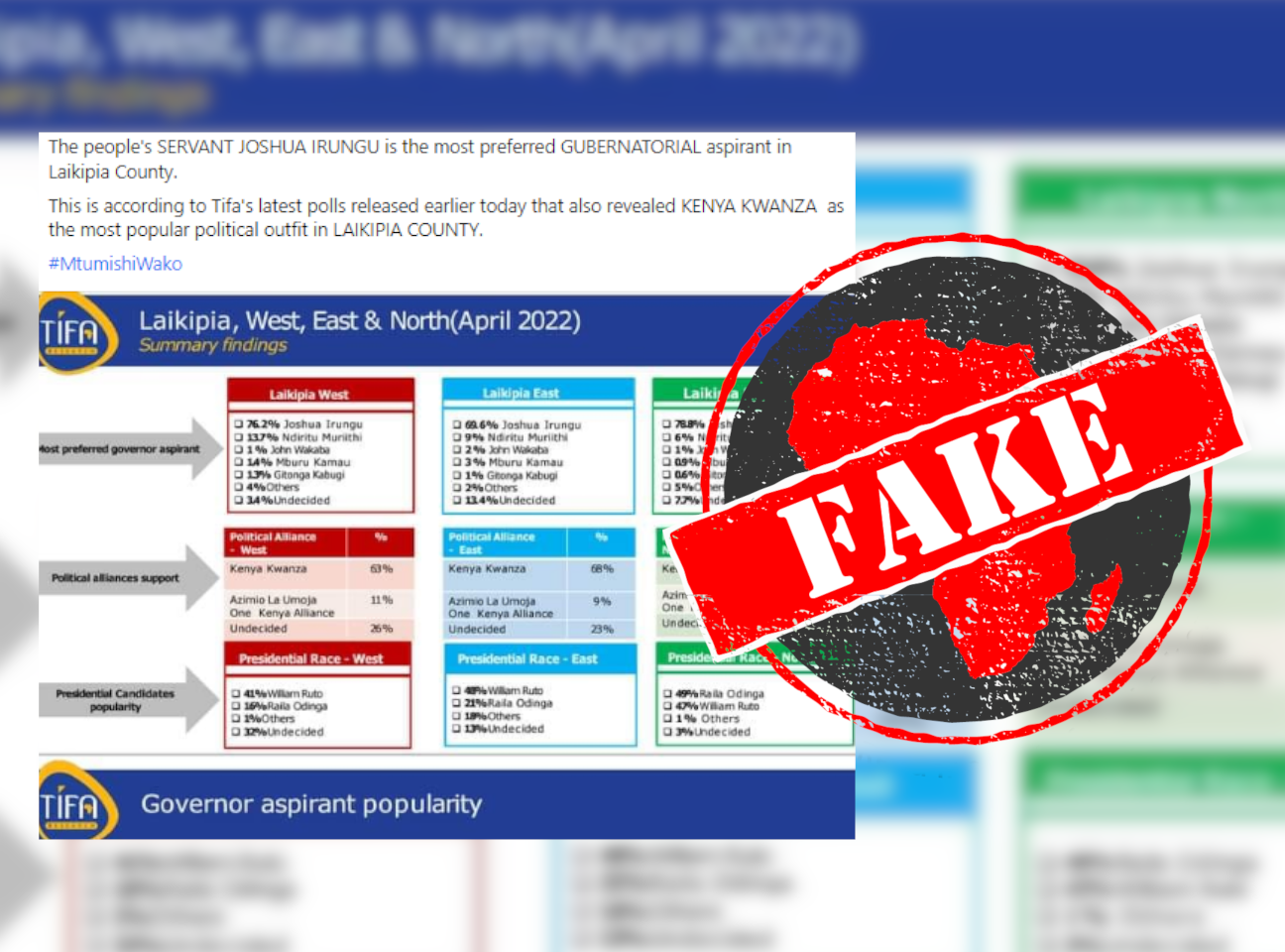A graphic posted on Facebook appears to show the results of a poll in Kenya’s Laikipia county, ranking those running for governor in the country’s general elections scheduled for August 2022.
Laikipia county is 300 kilometres northwest of the capital Nairobi.
The graphic, published in May 2022, includes the logo for Kenyan polling firm, Trends and Insights for Africa (Tifa Research) and is titled “Laikipia West, East and North (April 2022)”.
The graphic ranks former Laikipia governor Joshua Irungu as the most popular candidate. He is followed by Ndiritu Muriithi, the county's current governor.
Businessman John Wakaba is third and Mburu Kamau takes the fourth position, while former deputy governor Gitonga Kabugi ranks lowest in the poll.
The graphic also shows that Kenya Kwanza, the coalition of political parties headed by current deputy president William Ruto, is the most popular political coalition in the county. Azimio la Umoja One Kenya Alliance, whose presidential flag bearer is Orange Democratic Movement (ODM) leader Raila Odinga, comes second.
The third part of the image shows the popularity of the presidential candidates, with Ruto leading in Laikipia West and East and Odinga leading in Laikipia North.
But did Tifa Research really conduct and publish a poll on the candidates’ popularity? We checked.

‘Fake news alert’
The research agency usually releases its findings to the media, but this survey hasn’t been reported.
We searched the agency’s official website, Twitter account and Facebook page and couldn’t find any information about a recent survey conducted for the 2022 Laikipia governor race.
On 6 May, Tifa Research distanced themselves from the graphic, calling it “fake news” on their official Twitter account.
Republish our content for free
For publishers: what to do if your post is rated false
A fact-checker has rated your Facebook or Instagram post as “false”, “altered”, “partly false” or “missing context”. This could have serious consequences. What do you do?
Click on our guide for the steps you should follow.
Publishers guideAfrica Check teams up with Facebook
Africa Check is a partner in Meta's third-party fact-checking programme to help stop the spread of false information on social media.
The content we rate as “false” will be downgraded on Facebook and Instagram. This means fewer people will see it.
You can also help identify false information on Facebook. This guide explains how.


Add new comment